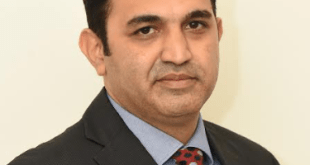Autism Spectrum Disorder (ASD) is a neurodevelopmental disorder which affects millions of individuals around the world and is characterized by impairment in behavior, communication, and social interactions. After years of exploration and treatment, the common type of treatment has been unable to tackle the real problem behind the disorder, which is treating the symptoms. Fortunately, a new cell therapy which has the potential to shape the future of treatment for autism is emerging that has great optimistic for patients, families, and care givers.
Result-Oriented Cellular Therapy for Autism
Over the past few years, cellular therapy, and especially therapies based on stem cells, has been the focus of attention in the treatment of autism. The main purpose of this approach is to replace missing or remodel damaged cells, possibly solving the brain and immune abnormalities seen in people with autism. The innate regenerative power of the body is exploited through the transplantation of healthy cells into the compromised site in order to aid the natural healing process and improve the damaged functional ability.
Recent findings concerning the effectiveness of cellular therapy for autism are astonishing. Surveys and clinical cases demonstrated that patients with autism have significantly better behavioral, cognitive, communicative and social skills. Improvement of eye contact and language development, as well as decrease of aggressiveness are often reported by parents after therapy for their children affected with ASD. Cellular therapy is geared toward ameliorating the neuro-inflammation believed to be responsible for the symptoms of autism and works to restore balance in the body’s functions.
It is this interest in the tangible benefits, which is not without reason, which causes more and more patients to practice cellular therapy as a basic approach to autism. Traditional interventions seek only to contain the disorder. Astoundingly, inhibiting the disease occurs at the cell level and thus has the underlying potential to improve the standard of living of the ASD patients.
India: A Global Destination for Autism Treatment
Regenerative medicine is one area where India has proudly taken the lead, especially when it comes to practices around cellular therapy for children with autism. As the country has a good track record of cellular treatments and good infrastructure, it is a hotbed for patients seeking such treatment across the globe. There has been a shift in the foreign countries, and many are now seeking treatment for autism in India, given the success rates, cost effectiveness and the available superior technology.
The Indian healthcare sector has doors which are always open to patients, a development that’s quite helpful to patients from nations where this option is rather costly or in its initial stages. This is fostered by the fact that the regulations formulate in India helps in the noninvasive application of treatments which are non-conventional such as cellular treatment, encouraging patients to seek improved treatments.
In addition to that, patients and their families are able to enjoy a fully integrated experience thanks to the country’s unique selling point: first-rate treatment, coupled with the cultural aspects of treatment. They combine state of the art technology with a compassionate touch, something that places India as the beacon of hope for every family battling autism.
StemRx: A Global Hub for Cellular Therapy
Leading this technology revolution is StemRx Hospital, a center for excellence in regenerative medicine that has emerged as the global epicenter of cellular therapy. StemRx Hospital and Research Centre in Navi Mumbai, India is known for its innovation in cellular therapy for autism and other conditions. StemRx appears to be successfully treating a wide demographic of patients from all over the world, thanks to its up to date facilities and highly trained medical staff, as well as modern treatment techniques.
StemRx’s patient oriented model has an interesting twist, that is the clinical practice. How the hospital has been able to achieve such success in treatment of autism is through its adherence to evidence based practices and focus on the results. This StemRx and autism intervention method does not only help treat with comorbid conditions, but it also restores the functioning of the brain by introducing stem cells isolated from bone marrow or umbilical cord blood through its well defined advanced protocols.
A New Dawn for Autism Treatment
The use of cellular therapy in treating autism has raised people’s expectations and created a wave of hope all over the world. This novel therapy is not only improving the lives of individuals living with autism but is also transforming the field of neurology. Thanks to StemRx, India is leading the revolution in autism treatment.
With more and more attention being focused on India for clinical purposes, and with intervention entities like StemRx Hospital providing outcomes based management; individuals suffering from autism are benefitting more than what was previously the case. Cellular therapy is not just providing new avenues of cure; it is giving hope to families who have been looking for effective treatment solutions for autism. It is a treatment that has been much awaited for through research, innovation and patient care strategies. It has arrived, and it is a new dawn on the treatment of autism, one filled with those that are filled with optimism.
Dr. Pradeep Mahajan, Regenerative Medicine Researcher & Founder of StemRx Hospital and Research Centre
 Newspatrolling.com News cum Content Syndication Portal Online
Newspatrolling.com News cum Content Syndication Portal Online





